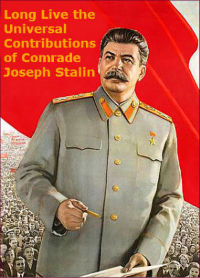The following article is from Zimbabwe’s Herald:
By Morris Mkwate in KINSHASA, DRC
PRESIDENT Mugabe arrived here yesterday to join in celebrations to mark the vast country’s 50 years of independence from Belgian colonial rule.
He was welcomed by Harare’s Ambassador to Kinshasa, Mr John Mayowe, DRC Prime Minister Adolf Muzitu, DRC Defence Minister Charles Mwandosimba and Zimbabwe embassy officials.
The President, who was accompanied by First Lady Amai Grace Mugabe, Foreign Affairs Minister Simbarashe Mumbengegwi, Defence Minister Emmerson Mnangagwa and several senior Government officials; was seen off at Harare International Airport by Media, Information and Publicity Minister Webster Shamu and service chiefs.
Forty other leaders, among them Sadc Heads of State and Government and Belgium’s King Albert are expected to attend the main celebrations at Boulevard Triomphale in Kinshasa today.
Several activities have been lined up for the golden jubilee, among them military and civilian parades and a state banquet.
DRC Ambassador to Zimbabwe Mr Mwampanga Mwana Nanga said President Mugabe’s presence at the festivities signified the strong bond between Harare and Kinshasa.
“I am glad President Mugabe is going to attend the celebrations, the relations between our countries are very strong because we share the same vision.
“This vision is not based on leaders. It centres on our dream of a new Africa that can stand on its feet.
 “The relationship is cast in blood. One must always bear in mind that Zimbabweans shed their blood in order to uphold the sovereignty of the Democratic Republic of Congo. You cannot just wipe that out.”
“The relationship is cast in blood. One must always bear in mind that Zimbabweans shed their blood in order to uphold the sovereignty of the Democratic Republic of Congo. You cannot just wipe that out.”
Ambassador Mwana Nanga said the event presented the Congolese with an opportunity to reflect on their successes and failures. He said the focus was on peace and stability, infrastructure development and ensuring locals benefit from the country’s rich mineral reserves.
Kinshasa has commissioned the Chinese to construct 3 000km of roads, railway links spanning 3 000km, 250 hospitals and three universities at a cost of US$9 billion.
Education and training are also key priority areas that have seen the country churn out 1 000 doctors and other professionals annually.
“This year’s celebrations are very important. First, in that they mark a long period since we gained independence.
“But more important is the fact that we have stumbled on the last 50 years and have learnt a lot from that past,” said Ambassador Mwana Nanga. “Our country has been at war for years. The conflict is not out of the making of DRC nationals. The West uses people to fight against their own kith and kin. They have always wanted to destabilise us in order to gain access to our resources.
“They are doing it here (in Zimbabwe) with the Chiadzwa diamonds. The West wants to benefit from this wealth. And if it doesn’t it will label the gems ‘blood diamonds’.
“One only wishes the West could follow the example of countries like China. We are not against foreign investment.
“What we want is a win-win situation, not the kind of system that presupposes control over the resources of other nations. However, we are optimistic about the future. We have trained people and the leadership has a vision to develop resources for the benefit of our people,” he said.
The DRC attained independence in 1960, but has been plagued by conflict since.
Its first leader, the iconic Cde Patrice Lumumba, was assassinated in a Belgian-American conspiracy that propelled Western-backed rebel leader Mobutu Sese Seko to power.
A liberation struggle led by nationalists Pierre Mulele, Antoine Gizenga and Cde Laurent Desire Kabila then followed. But it was the Alliance de Forces Democratique Pour la Liberation du Congo/Zaire led by Cde Kabila that made the difference. The liberation movement toppled Mobutu on May 17, 1997.
However, Rwandese and Ugandan troops — backed by the West — invaded the country in August 1998.
Zimbabwe, Angola, Namibia and, briefly Chad, moved in to defend Kinshasa under the auspices of Sadc.
President Kabila, who had assumed power after the dismantling of the Mobutu establishment, was assassinated in 2001. His son and current leader, Joseph, took over and was involved in the inter-Congolese dialogue that culminated in the formation of an eight-party coalition government in 2003. In 2006, the DRC held its first multi-party elections, which drew 33 presidential aspirants.
President Kabila won the first round, but failed to garner the mandatory 50 percent to ensure outright victory.
He then prevailed over his main rival Jean-Pierre Bemba in the second round. During his visit to Zimbabwe last October, President Kabila paid tribute to Zimbabwe, Angola and Namibia for their help.

















